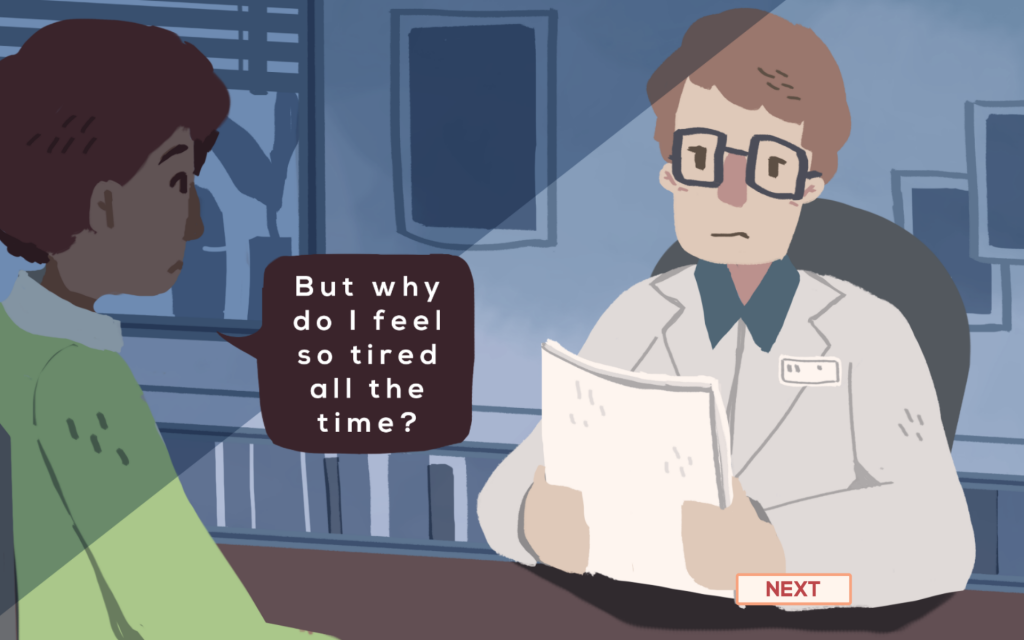
By Al Donato
Many games capitalize on bad vibes. Grueling repetition is encouraged for grinding levels. Survival horror games milk jumpscares, and nausea is a real risk accompanying games that use virtual reality. Robin, a point-and-click game about Chronic Fatigue Syndrome (CFS), doesn’t try to give players bleary-eyed backaches or make exhaustion fun. What it does instead is reinvent a classic game mechanic into a visual disruption of mainstream disability discourse.
Disability in any media often veers into dangerous misrepresentation. From inspiration porn to romanticizing disorders, there’s very few depictions of how we live mundanely. That’s not the case in Robin, where the titular protagonist is just trying to survive a long weekend in her bachelor apartment. Sounds like an easy win; all the player needs to do is make sure her bird doesn’t starve, chores are done, and basic hygiene is sort of a thing. But regardless of what you do, CFS takes its toll. Every day, an energy meter onscreen depletes after any action. When it’s empty, a bone-weary Robin has to go to sleep. Completionists beware: doing everything in this game is meant to be impossible and multiple endings dissuade playing styles that suggest Robin must be productive to have value.
Created by New Zealander students for their final project, Robin was based on how game artist Annaliese Bevan navigated her CFS symptoms last year. Elements of spoon theory helped her understand what she was going through and influenced the game’s energy-based mechanics. Spoon theory, which was created by writer Christine Miserandino to explain lupus to a friend, uses spoons as a metaphor for units of energy. While able-bodied people have enough spoons to deal with all their basic needs every day, those with chronic illnesses and pain have a limited amount that need to be consciously rationed.
Players are used to the ubiquitous clutter of energy meters on their screens. From these heads-up displays (HUDs), unseen variables like health and ammo are easily understood as finite. By translating this interface into a real-life problem, Robin’s developers have likewise rendered an invisible struggle with metaphorical cutlery into an undeniable aspect of gameplay that never ends for the chronically ill.
Bevan says players found the game was an entry point into their own health, convincing them to finally go see a doctor or explore their condition.
“Some have … found the subject too close to home to play the game themselves, but have shown it to their loved ones to help them understand instead it,” Bevan says. “Able-bodied players have thanked us for showing them what it’s like, and often they have said they know someone with the condition and they understand them better now.”
Considering spoon theory’s origins, Robin’s success in bridging knowledge gaps comes from how well it encodes CFS in a way that destroys a long-held belief about being invisibly disabled: it’s the fault of the disabled for not trying hard enough.
Robin was created by Isabelle Del Torre, Jose Fernando Garcia, Annalise Bevan, and Poppy de Raad. You can download Robin for free at https://robingame.itch.io/robin.
